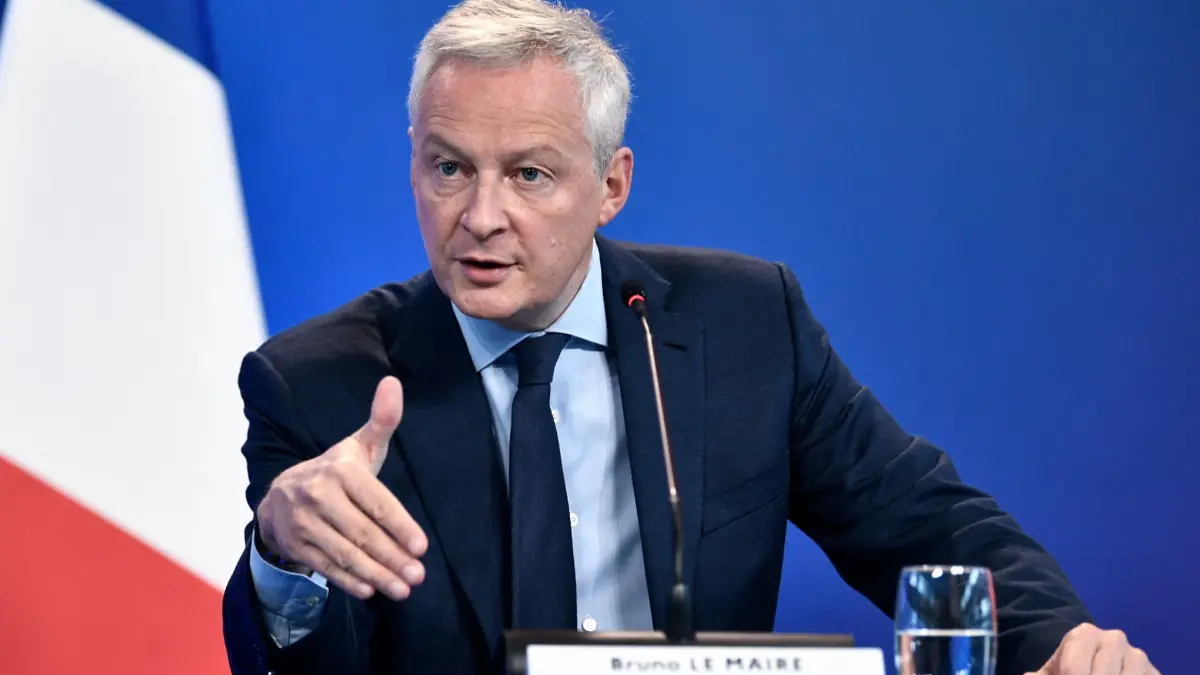
France forces food companies to reduce prices
Finance Minister Le Maire confirms that from July consumers will pay less for food

The French government stands united against rising food prices. And it doesn't use half-measures, it seems. Finance Minister Bruno Le Maire said last friday that French consumers, starting in july, will pay less for food. The declaration comes after the government secured commitments from 75 food companies, including a giant like Unilever, to reduce prices on hundreds of products. According to the minister's forecast, pasta, poultry, and vegetable oil are among the products on which prices will be cut: beef, pork, and milk costs, on the other hand, will not be affected by the maneuver.
Even, according to the minister's statement, companies that produce 80% of what the French eat could face financial penalties if they do not comply with the new rules. "Already in July the prices of some products will go down -Le Maire said last Friday in a television interview after meeting a day earlier with food industry representatives-. There will be controls and penalties for those who do not respect the rules".
The French government is described by transalpine media outlets as "furious" that supermarket prices in recent months have reached record levels despite the fact that the costs of many raw materials used by food producers have fallen. Not only that, the government points out: improving prospects in various crops have helped push the UN index of global food commodity prices to two-year lows. France's finance minister has already threatened to recover with special taxes what he called "undue" profits of food companies if they did not lower prices to benefit consumers already struggling with high energy bills.
The pace of food price increases has slowed across the Eurozone but is the main factor keeping inflation high. The ECB, which is expected to raise interest rates again next week despite very weak growth, said high corporate profit margins pose a risk to inflation, which, in the Eurozone, fell more than expected in may but is still at least three lengths away from the ECB's 2% target.
Le Maire said that if food companies fail to deliver on their promise to reduce prices, he himself could "name and shame" them publicly. "On a number of products for which wholesale prices have decreased, retail prices will also have to decrease, by 2, 3, 5, maybe even 10 percent", the minister said, adding that next week he will have a full list of affected products.
Unilever, he said, is one of 75 companies that the government expects to cut prices next month. "We confirm our participation in the ongoing discussions with the Economy ministry and all stakeholders, including retailers, to identify the best actions to serve the purchasing power of the French, in this context of high inflation", a company spokesman said.
France's Carrefour has an "anti-inflation button" on its website that shows customers cheaper alternatives to products, often pointing them to own-brand groceries. Other companies such as Auchan, Nestlé, Danone, Kraft Heinz, and PepsiCo have not yet taken sides on the issue. The French supermarket industry association Fcd welcomed the government's intervention, but said most food companies have so far refused to renegotiate prices.
High food prices are a concern for European governments from Britain to Italy, but France has been among the most aggressive in imposing price cuts. In Hungary, Prime Minister Viktor Orban has imposed mandatory price cuts on some basic food products; Britain is studying price caps.
On the other hand, supermarket chains across Europe are alarmed at consumers opting for cheaper private-label alternatives rather than buying branded food products. According to a Euromonitor survey, 22 percent of European consumers said they plan to increase their private-label purchases in 2023, up 5 percentage points from last year.
French annual inflation fell more than expected in may, reaching its lowest level in the past year, 6 percent, thanks to moderating increases in energy and food prices. But food prices still rose 14% again in may. In march, however, there was a record hike of nearly 16 percent in French food prices after food companies and large retailers agreed to an average price increase of 10% in response to soaring input costs due to Russia's invasion of Ukraine in February 2022 and rising wages.
Meanwhile, food spending fell to its lowest level since March 2009 but the food industry posted a surge in profits, largely making up for the sharp declines suffered during the pandemic, minister Le Maire attested. The industry's operating profits rose 15 percent in the first quarter compared with the previous quarter, according to data from Insee, the National institute of statistics and economic studies.
EFA News - European Food Agency